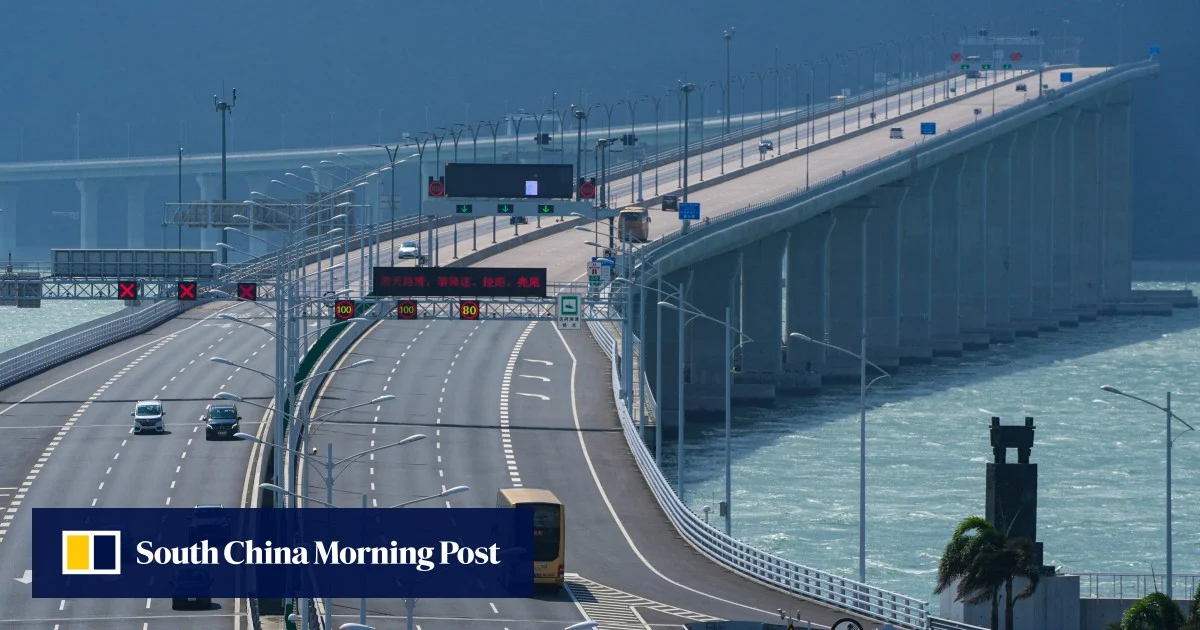Published on
August 15, 2025
Hong Kong’s MTR Corporation has introduced the initial nine of 35 Alexander Dennis Enviro500EV double-decker buses, representing an important advancement in the territory’s commitment to sustainable public transport. These battery-electric vehicles are integral to a wider programme to phase out legacy diesel fleets, thereby lowering emissions and enriching the visitor experience in the territory. The new buses will serve feeder routes to the Mass Transit Railway in the Northwest New Territories, aligning Hong Kong’s environmental agenda to provide tourists a cleaner, greener way to discover the city.
The deployment of the electric double-decker buses underscores a pivotal upgrade to the territory’s eco-conscious tourism infrastructure. Each vehicle is powered by the Voith Electrical Drive System, which underpins MTR’s initiative to shrink the carbon footprint of its transport services while maintaining reliability and comfort. Already operating a fleet of more than 170 electric buses and transporting approximately 160,000 passengers per day, MTR is set to further enhance both the environmental performance of its services and the quality of the visitor experience throughout the region.
Electric Buses: A Green Revolution for Tourism
Visitors to Hong Kong can now choose a transport option that aligns with their eco-conscious travel values. The Alexander Dennis Enviro500EV double-decker buses are set to contribute significantly to the city’s reputation as a sustainable destination. Characterised by their quiet operation, zero exhaust emissions, and energy efficiency, these buses embody the global shift toward greener mobility in the tourism sector.
Hong Kong’s hallmark attractions—Victoria Peak, Tsim Sha Tsui, and Lantau Island—will benefit from the electric fleet by offering not merely transport, but a travel experience designed for sustainability and enjoyment. Guests can sit comfortably on the upper deck, savouring unobstructed views of the dynamic city and its encircling greenery, all while knowing their journey leaves a minimal carbon footprint. The classic double-decker silhouette, now electrified, enhances the charm of sightseeing while safeguarding the environment.
By embedding these electric buses within the wider public transport network, Hong Kong reinforces a travel culture that values both exploration and conservation, encouraging visitors to choose low-impact transport modes in greater numbers. The move strengthens the city’s standing as a progressive, sustainable tourism hub within Asia.
MTR’s Commitment to Sustainable Transport
MTR Corporation’s deployment of electric buses constitutes a decisive element of its expanded sustainability agenda. Complementing the launch of the Enviro500EV buses, the Corporation has committed resources to a suite of green transport assets, including energy-efficient rolling stock, photovoltaic-covered depots, and other renewable-energy-supporting infrastructure.
By operating electric buses, MTR actively curbs both airborne pollutants and greenhouse gases, reinforcing the transport sector’s contribution to Hong Kong’s overarching commitment to carbon neutrality by the mid-century. Furthermore, the electric fleet fortifies the tourism sector by furnishing a low-emission, scenic option that residents and visitors alike can embrace without compromising environmental objectives.
As Hong Kong strengthens its appeal as a premier international tourism magnet, the integration of sustainable mobility solutions takes on heightened urgency. This new, entirely electric fleet of iconic, jet-black double-deckers signals the city’s resolve to elevate the ecological integrity of the visitor experience, thereby melding effective transport with a compelling, environmentally attuned sense of place.
Expanding the Electric Fleet and Future Prospects
The delivery of the first nine buses is only the initial phase. The complete deployment of 35 electric double-decker buses will integrate seamlessly into the MTR’s public transport network, further advancing the sustainability and capacity of Hong Kong’s transport infrastructure. These vehicles will operate on priority corridors linking the Northwest New Territories, an area-renowned for its natural scenery and for its proximity to key visitor attractions such as Hong Kong Disneyland and the Ngong Ping 360 cable car.
The electric buses will enhance the experience of incoming tourists and, equally, will elevate the daily commute for residents. Quieter, smoother rides will lower noise levels and further shrink the city’s carbon emissions. Their deployment is a tangible step toward Hong Kong’s ambition of a smart city—where cutting-edge technology and ecological responsibility converge to raise the quality of life for residents and visitors alike.
Enhancing Tourism Through Improved Connectivity
The deployment of electric bus services significantly improves the accessibility of Hong Kong’s major tourist attractions. These zero-emission vehicles provide seamless travel between the airport, the central districts, and the city’s signature sites, while drastically lowering the carbon footprint. By making carbon-neutral transport viable, the scheme encourages visitors to explore lesser-known locations and natural reserves, thus distributing tourist flows more evenly and fostering the sustainable management of the urban and natural environment.
For the sector at large, the expansion of electric bus services creates fertile ground for synergy between transport operators and the hospitality industry. Hotels, guided tour companies, and ancillary services are now empowered to bundle eco-conscious itineraries, meeting the surging appetite for sustainable travel and demonstrating responsible stewardship of the destination.
Looking Ahead: The Next Phase of Sustainable Tourism in Hong Kong
The rollout of electric buses represents a pivotal chapter in Hong Kong’s commitment to upgrading transport services while addressing the appetite for sustainable tourism. By embracing emerging green technologies and committing to the expansion of resilient eco-infrastructure, Hong Kong is well positioned to become a regional exemplar of sustainable tourism leadership across Asia.
Preparations for the city’s anticipated tourism growth underscore the need for electric buses and other environmentally friendly transport options, ensuring Hong Kong continues to allure discerning global travelers committed to sustainability.
Conclusion
MTR Corporation’s introduction of Hydrogen Electric Double-Decker Buses marks a pivotal advance in Hong Kong’s dedication to sustainable tourism and low-emission mobility. By curtailing greenhouse gases and providing travelers with a clean, quiet means to navigate the city’s cultural and ecological sites, Hong Kong not only upgrades its tourism product but also demonstrates to the world how modern destinations can harmonize responsible stewardship with contemporary visitor expectations. As the complete fleet enters service, the city will fortify its tourism infrastructure and offer a greener, more distinctive experience that resonates long after departure.



